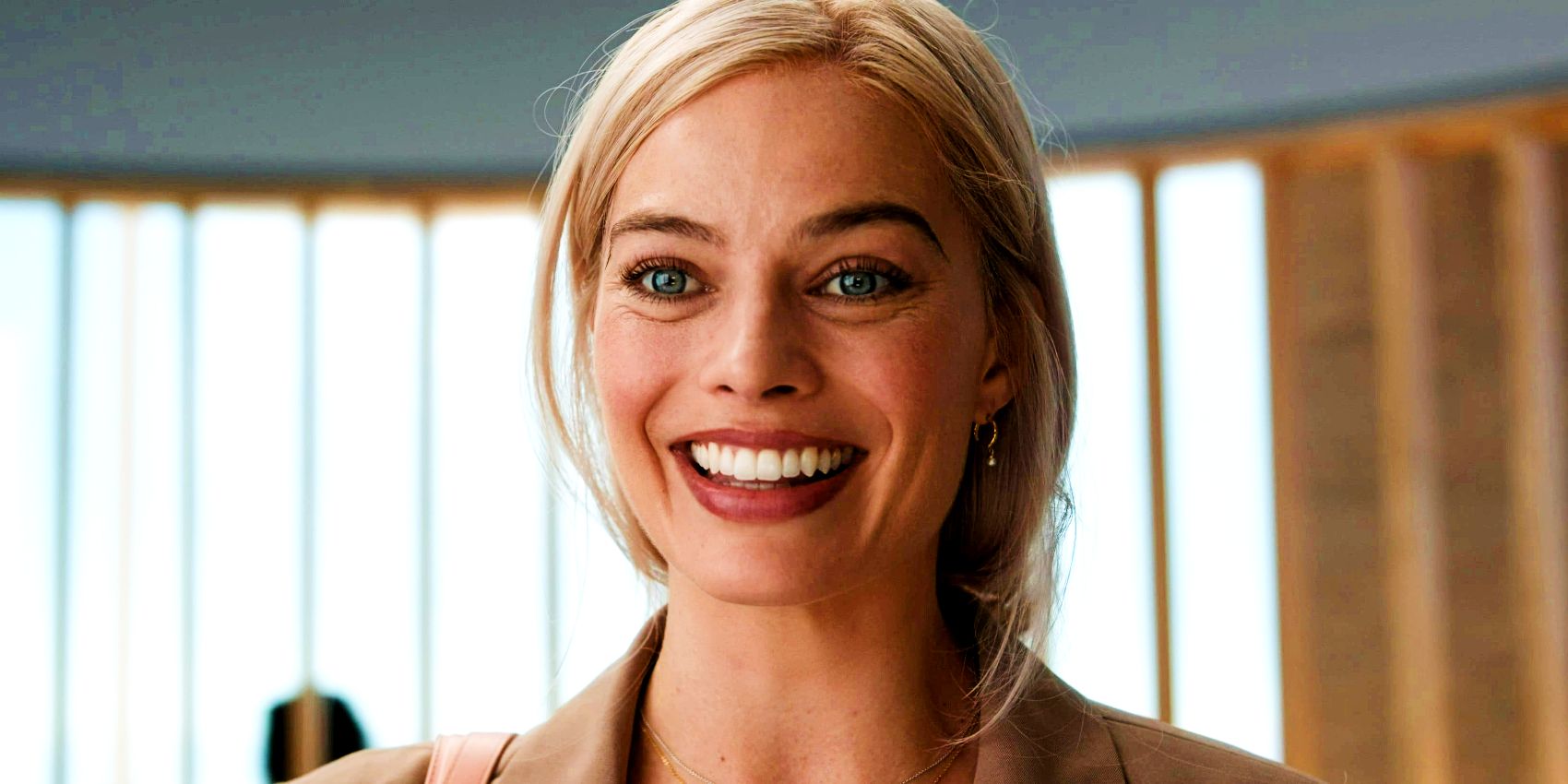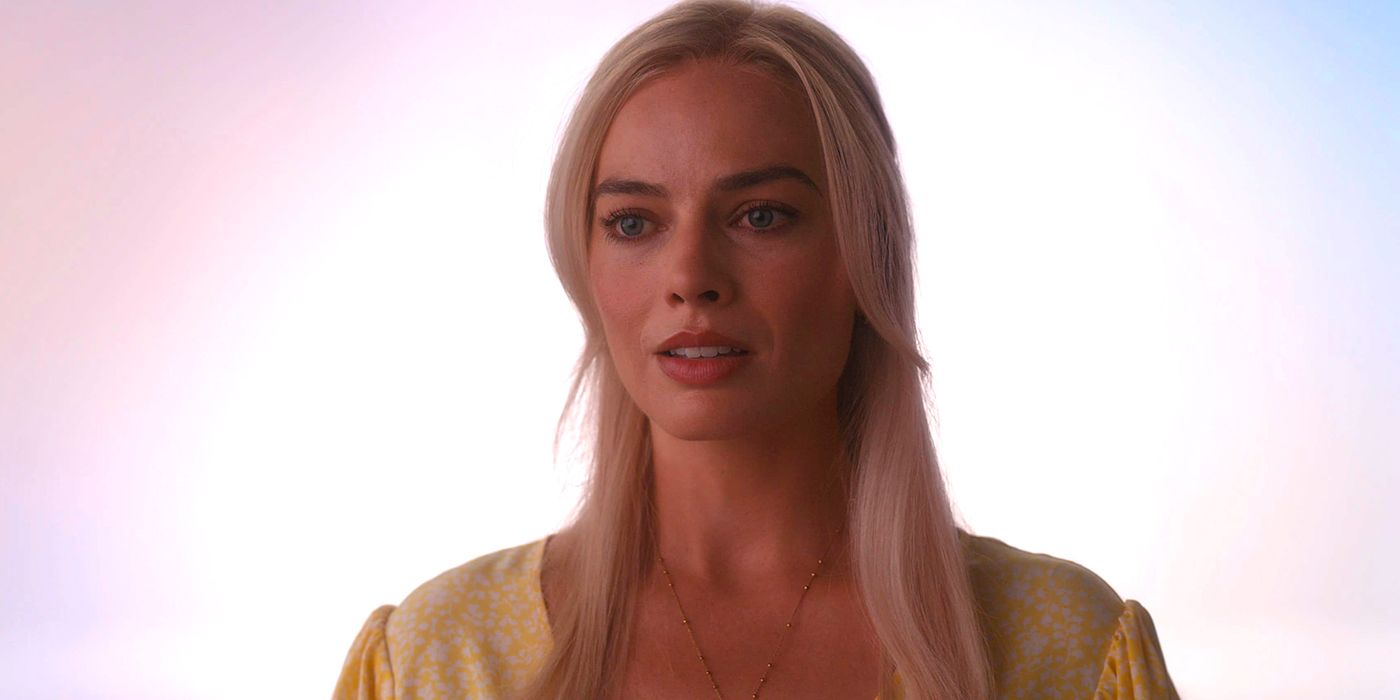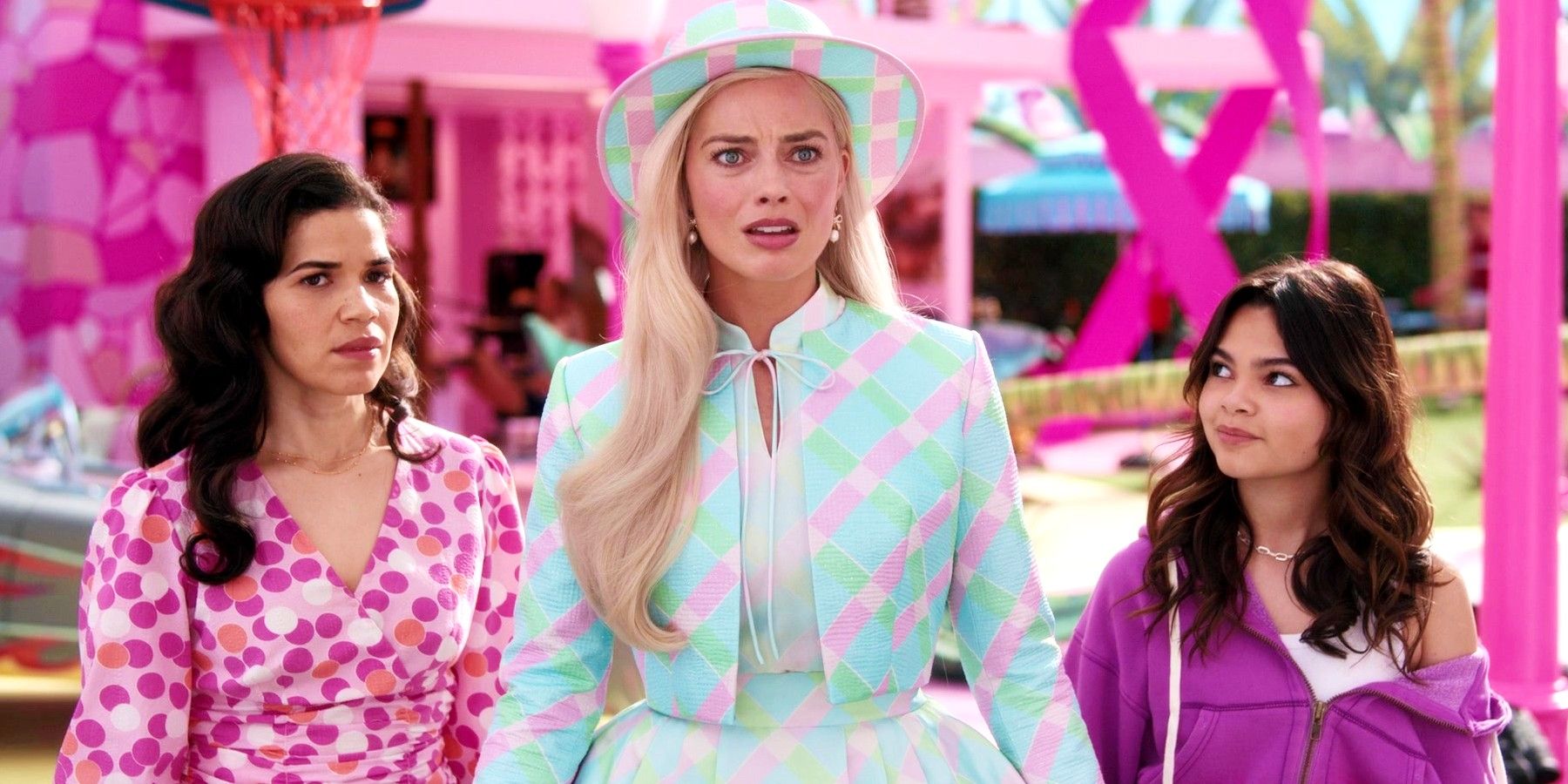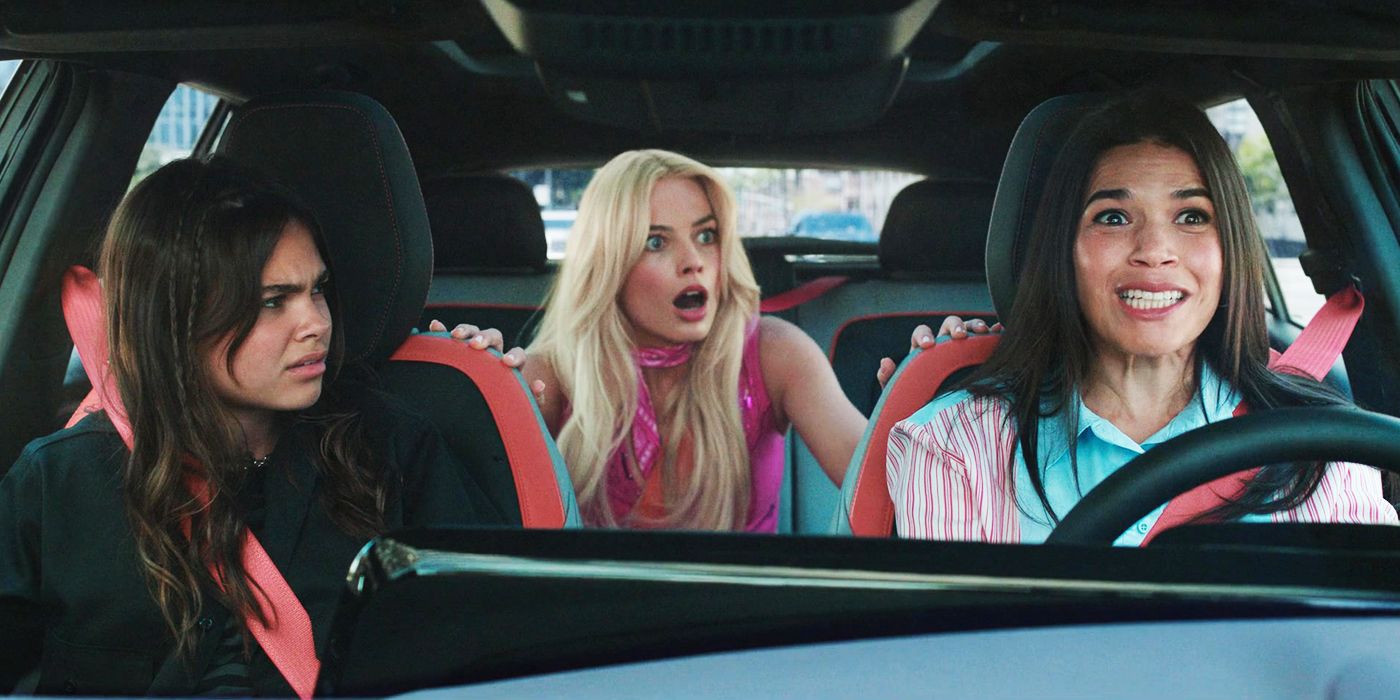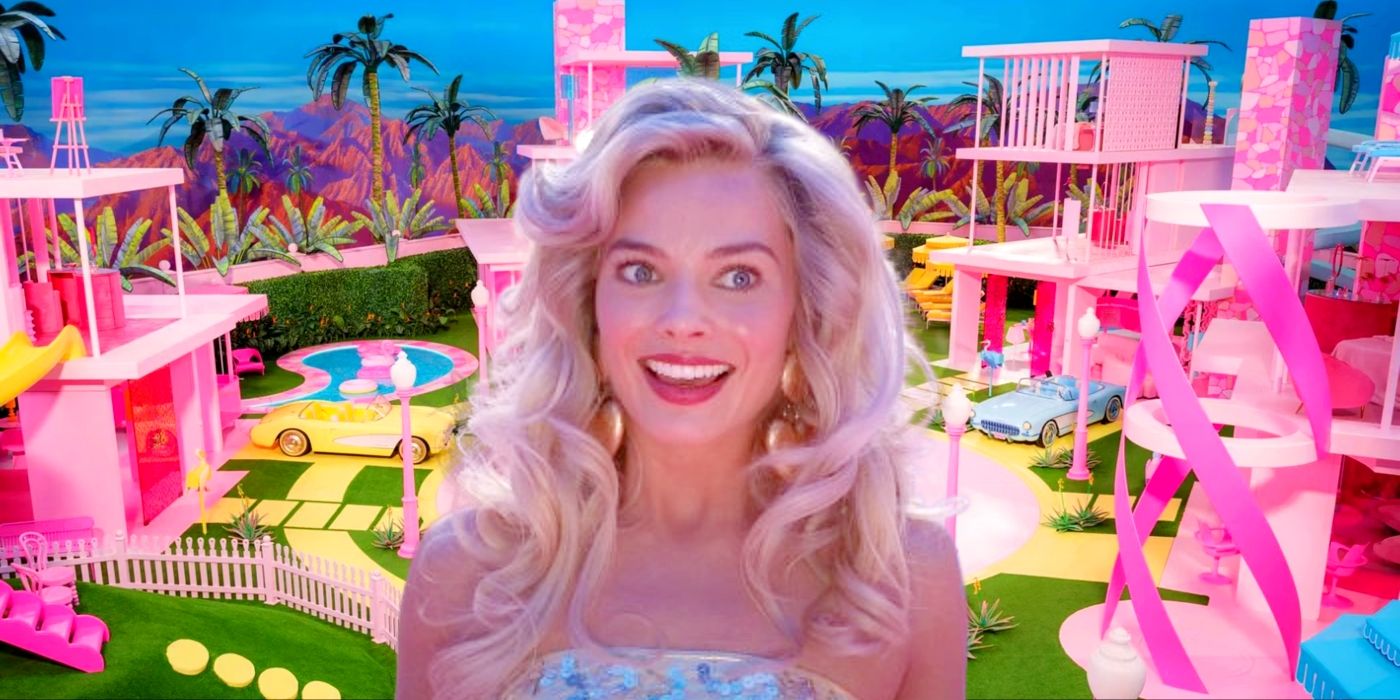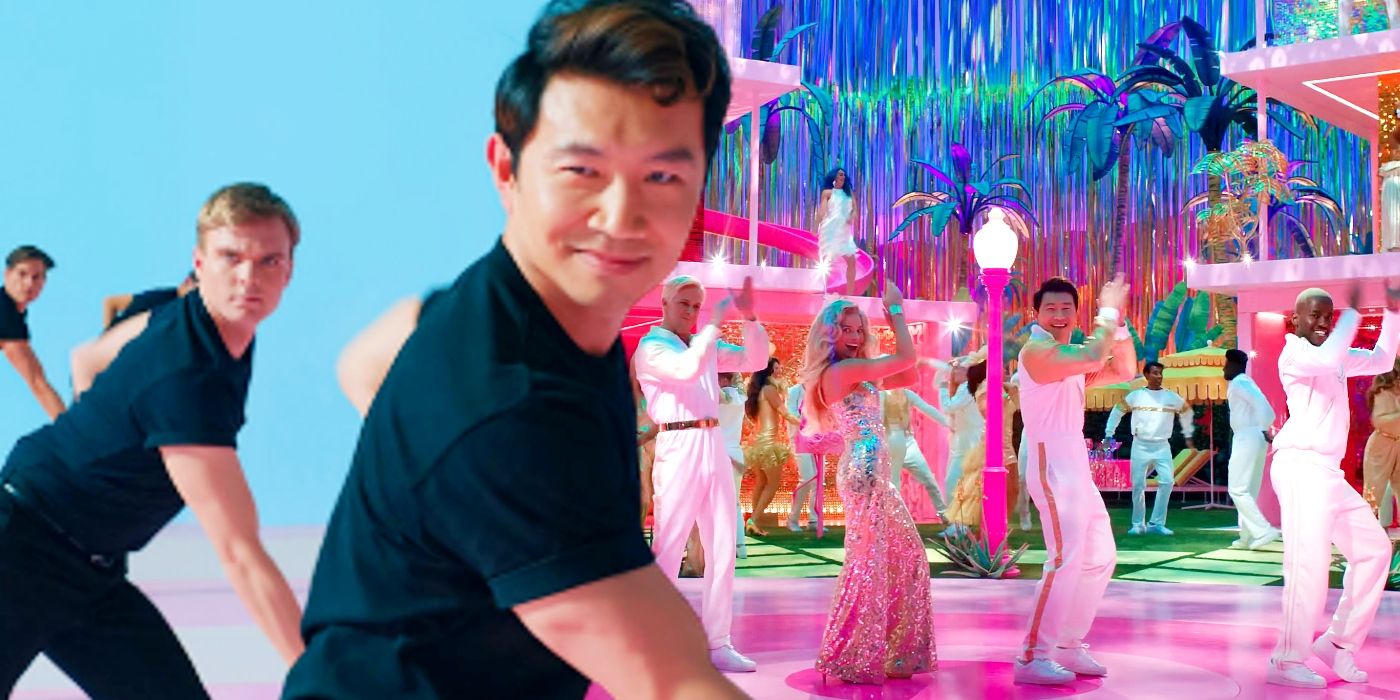
The Journey of Stereotypical Barbie
The closing line of the Barbie movie might be controversial to some, but the film's star Margot Robbie stands by it, and she's right to do so. Greta Gerwig's Barbie (2023) begins in Barbie Land, where every day is perfect and all the Barbies are happy all the time. Robbie plays the lead titular doll also known as Stereotypical Barbie, who begins experiencing some unfamiliar 'malfunctions' like flat feet and irrepressible thoughts of death. To solve her problem, Barbie visits Weird Barbie (Kate McKinnon), who advises her to visit the Real World and find the person playing with her. However, Barbie's existential crisis worsens in the Real World, as she discovers that women don't rule the world like they do in Barbie Land. To make matters worse, upon her return to Barbie Land with her 'owner,' Gloria (America Ferrera), and her daughter, Sasha (Ariana Greenblatt), Barbie finds that her boyfriend, Ken (Ryan Gosling), has brainwashed the Barbies and turned their female utopia into a patriarchal society run by Kens. By the end of Barbie, things are back in order with some compromises between the Barbies and Kens, but Stereotypical Barbie is still conflicted about how to proceed with her existence: remain a doll or become human?
Margot Robbie as Stereotypical Barbie smiling in the doctor's office at the end of the Barbie movie.
Stereotypical Barbie's journey was about discovering her innate humanness by visiting the Real World and experiencing complex emotions for the first time. Barbie is forced to come to terms with her inherent flaws as the facade of her whole existence as a perfect plastic doll comes crashing down. By the end of the movie, she has the choice to either continue living in the utopia of Barbie Land or find out what living in the Real World is like. Stereotypical Barbie deciding to become human after all was the perfect way to end her story, as it showed how much she's grown in her journey already. The ending also did a great job showing Barbie adapting to human life in the Real World, while the novelty of the otherwise mundane experiences is still fresh. Her getting overly excited about her visit to the gynecologist was a brilliant way to establish her newfound physicality and maintain her existing personality.
Stereotypical Barbie (Margot Robbie) stands in front of a white screen at the end of the Barbie movie.
The Controversy of Barbie's Final Line
At the very end of Barbie, the narrator (Helen Mirren) reveals that 'Barbie left behind the pastels and plastics of Barbie Land for the pastels and plastics Los Angeles.' Barbie is then seen wearing a regular, casual outfit as Gloria (America Ferrera)'s family drops her off at an unidentified office. Barbie approaches the receptionist's desk and gives her name as 'Handler, Barbara' (the last name of the Barbie creator, Ruth Handler, played by Rhea Pearlman in the movie). When asked what she is there for, Barbie enthusiastically declares, 'I'm here to see my gynecologist!' Barbie's closing line is designed to catch viewers off guard: it lingers in the air as the credits roll, making the audience think for a second before realizing what it's suggesting. Margot Robbie noted that when watching Barbie with others, she's always 'waiting for people's reaction' to the infamous line because it 'takes a second' for it to fully register. 'Like, you hear it and then your brain catches up and understands: 'Oh, she has a vagina now.' It's a hilarious and effective way to confirm that Barbie has chosen to become human, but it was also a risqu\u00e9 choice as Barbie's final line. However, Robbie pointed out that despite some execs' fears, 'little kids asking what a gynecologist is and learning that early on' after seeing the Barbie movie 'could be the best thing to come out of this.' After all, gynecology is just another field of medicine and shouldn't be taboo to discuss openly just because it primarily deals with female reproductive organs. If the final line of Barbie encourages parents to discuss this subject with their kids, it is ultimately a good thing the movie brought.
Barbie (Margot Robbie) with a confused expression on her face while Gloria (America Ferrera) and Sasha (Ariana Greenblatt) stand next to her in Barbie.
The Feminist Message of Barbie's Conclusion
After Ken discovers patriarchy in the Real World and brings it back to Barbie Land, the Barbies are thrust into a patriarchal society for the first time and find out what it's like to experience gendered oppression. With Gloria's help, the Barbies also learn about the endless hypocritical and contradictory expectations that women face in the Real World. The Barbie movie is an inherently feminist film throughout, and its closing line normalizing the mention of gynecology in a lighthearted and funny way in a mainstream movie wraps up the feminist themes of Barbie in such a genius way.
Sasha (Ariana Greenblatt) looking confused and Barbie (Margot Robbie) looking surprised as Gloria drives the car in Barbie
